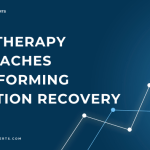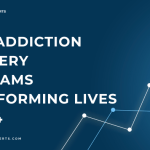Table of Contents
- Understanding Cognitive Behavioral Therapy (CBT)
- Identifying Triggers and Patterns
- Developing Coping Strategies
- Building a Supportive Environment
- Enhancing Self-Awareness
- Setting Realistic Goals
- Maintaining Long-Term Recovery
Cognitive Behavioral Therapy (CBT) is a powerful approach that has transformed lives in various ways, particularly in the realm of addiction recovery. This article will delve into seven fundamental ways CBT can facilitate the recovery process, helping individuals regain control over their lives and foster resilience against addiction.
Understanding Cognitive Behavioral Therapy (CBT)
Cognitive Behavioral Therapy is a structured, short-term, goal-oriented psychotherapy that focuses on the interconnections between thoughts, feelings, and behaviors. It operates on the premise that our thoughts can significantly influence our emotions and actions. By reshaping negative thought patterns, CBT empowers individuals to change their behaviors and enhance their emotional well-being.
Key Features of CBT:
- Structured Sessions: Typically involves 12-20 sessions with a trained therapist.
- Goal-Oriented: Focuses on specific goals to address challenges.
- Skills Development: Teaches practical skills to manage thoughts and emotions.
For a deeper understanding of CBT, you can explore resources from the American Psychological Association.
Identifying Triggers and Patterns
One of the first steps in addiction recovery is recognizing triggers—situations, people, or feelings that prompt cravings or relapse. CBT helps individuals identify these triggers and understand the patterns of their addictive behaviors.
How CBT Helps:
- Self-Monitoring: Clients keep logs of their thoughts and feelings, which aids in recognizing triggers.
- Cognitive Restructuring: CBT teaches individuals to challenge and change unhelpful thoughts associated with their triggers.
By making awareness of triggers a priority, individuals can develop a better understanding of their addiction, allowing for more effective coping mechanisms. For additional techniques on managing stress related to triggers, refer to the 10 effective stress management strategies article.
Developing Coping Strategies
CBT equips individuals with practical coping strategies to handle cravings and stressors that may lead to substance use. These strategies can range from relaxation techniques to problem-solving skills.
Techniques Involved:
- Mindfulness: Encourages being present and aware, reducing impulsive reactions. You can learn more about mindfulness techniques in our 10 mindfulness techniques to reduce stress effectively article.
- Behavioral Activation: Involves engaging in positive activities that can distract from cravings.
With these tools, individuals learn to navigate challenging situations without resorting to substances, ultimately enhancing their recovery journey.
Building a Supportive Environment
A strong support system is crucial for recovery. CBT emphasizes the importance of surrounding oneself with positive influences and supportive relationships.
Creating a Support Network:
- Therapeutic Relationships: Therapists provide guidance and support, serving as a crucial part of the recovery team.
- Family Involvement: Involving family members in therapy can improve communication and understanding.
By fostering a supportive environment, individuals feel less isolated and more empowered to pursue their recovery goals. For insights on how positive thinking can enhance relationships, consider reading 10 ways positive thinking transforms your relationships.
Enhancing Self-Awareness
Self-awareness is a cornerstone of effective addiction recovery. CBT promotes introspection and helps individuals understand their thoughts, feelings, and actions more clearly.
Benefits of Enhanced Self-Awareness:
- Improved Decision Making: Understanding the consequences of actions aids in making healthier choices.
- Emotional Regulation: Recognizing emotions allows individuals to respond rather than react, reducing the likelihood of relapse.
Through the process of self-discovery, individuals can cultivate a deeper understanding of themselves, making it easier to navigate the complexities of recovery. For strategies to enhance emotional regulation, check out 10 effective emotional regulation techniques for daily life.
Setting Realistic Goals
Goal-setting is an essential component of CBT that plays a significant role in addiction recovery. Setting achievable, measurable goals makes the recovery process more manageable and less overwhelming.
SMART Goals Framework:
- Specific: Clear and well-defined goals.
- Measurable: Criteria to track progress.
- Achievable: Realistic and attainable goals.
- Relevant: Goals that matter to the individual.
- Time-Bound: A clear timeline for achieving the goals.
By establishing SMART goals, individuals can focus their efforts and celebrate small victories, reinforcing their motivation to continue on the path to recovery. For more on effective goal-setting strategies, see 10 proven techniques for effective goal setting.
Maintaining Long-Term Recovery
The journey doesn’t end after initial recovery. CBT provides tools to maintain long-term sobriety and prevent relapse. It emphasizes the importance of continual self-reflection and adaptation of coping strategies.
Long-Term Strategies:
- Regular Check-Ins: Continuing therapy sessions to reassess goals and strategies.
- Peer Support Groups: Engaging in community support through groups like Alcoholics Anonymous (AA) or Narcotics Anonymous (NA).
Maintaining recovery is a continuous process, and CBT equips individuals with the resilience and skills needed to navigate the ups and downs of life. For insights on how resilience can be built, explore 10 effective strategies for building resilience in mental health.
FAQs
- How effective is CBT for addiction?
CBT has been shown to be effective in treating various substance use disorders. Studies indicate that individuals who undergo CBT experience reduced cravings and improved coping strategies. - Can I use CBT on my own?
While self-help materials can be beneficial, working with a trained therapist is recommended for optimal results. They can provide tailored guidance and support. - Is CBT suitable for everyone?
CBT is adaptable and can be effective for many individuals dealing with addiction. However, it’s essential to consult with a healthcare provider to determine the best treatment approach for your needs. - How long does CBT take to show results?
The timeframe varies from person to person, but many individuals start noticing improvements within a few weeks of therapy.
Cognitive Behavioral Therapy is a transformative approach that enhances the recovery journey for individuals battling addiction. By focusing on thought patterns, coping strategies, and personal growth, CBT offers a comprehensive framework that supports lasting change. If you or someone you know is struggling with addiction, consider exploring CBT as a viable path to recovery. For more information, check out the Substance Abuse and Mental Health Services Administration.




